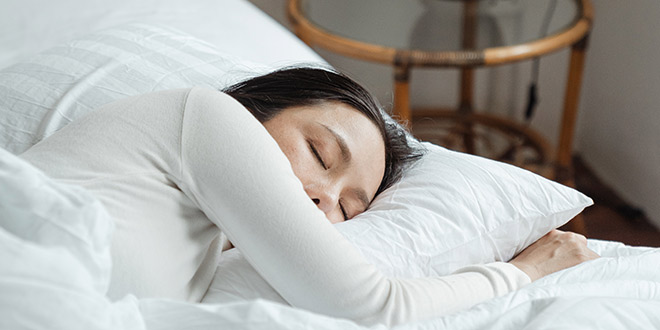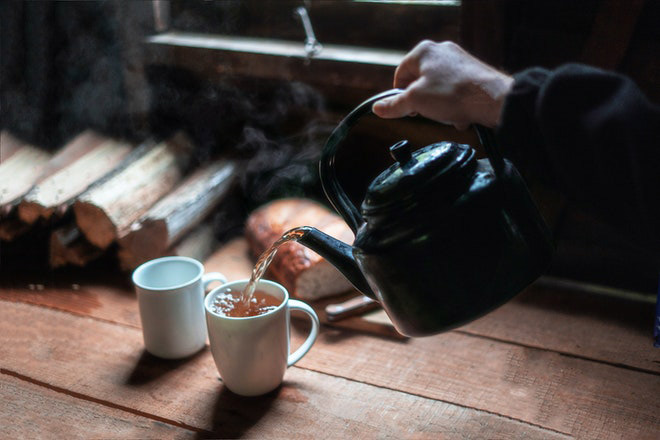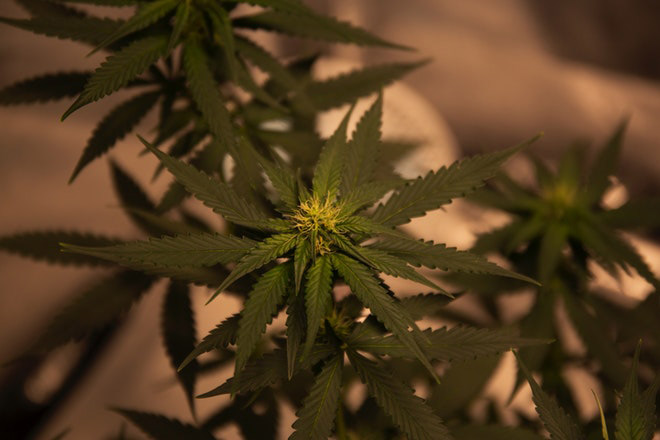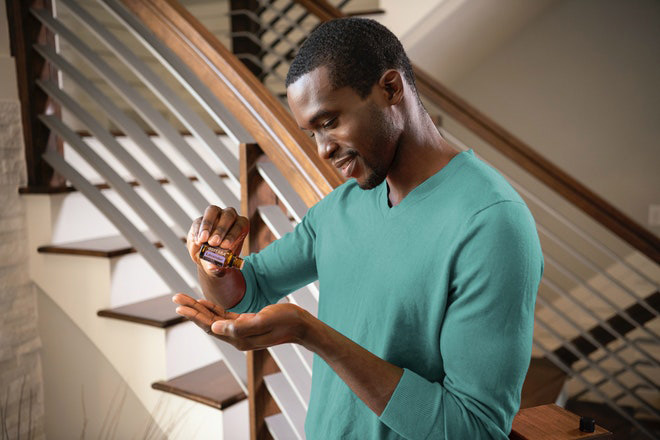
Improve your sleep quality thanks to these 6 simple products
Over the past few decades, many studies have proven the positive influence of sleep (including REM sleep and dreams) on creativity.1,2
You don’t have to be a researcher to understand the benefits of sleep, though. Regularly getting seven to nine hours of quality sleep every night should be enough to convince you. The simple truth is that it is not so simple to claim a good night’s rest. And if you find yourself struggling to fall asleep at night, you might want any help you can get.
Fortunately, there are many ways you can improve your sleep quality— from meditation to diet and exercise.
Here are some products you could integrate into your bedtime routine to help you find your way to the arms of Morpheus.

1. Herbal teas
Caffeine has a half-life of 3 to 5 hours, meaning that drinking any caffeinated tea or coffee is out of the question before going to bed.
In fact, you should avoid it in the afternoon as well.
Thankfully, herbal teas offer a great alternative.
Herbal teas are a terrific way to prepare your body and your mind to sleep (see my statement). These herbs are known for promoting sleep and improving relaxation:
- Chamomile
- Valerian root
- Lemon Balm
- Tulsi (Holy Basil)
- Lavender
- Passionflower
You can drink them as single-flavor teas or in blends.
My go-to blend is 50% chamomile and 50% mugwort (a plant used for moxibustion and that can also enhance dreams), but I’ve found Organic Nighty Night® Extra Tea to be effective, too.
[novashare_tweet tweet=”Honor your sleep and see how it impacts your creative practice. ” cta_text=”Tweet this” hide_hashtags=”true”]
2. Thermometer and hygrometer
I bet you didn’t expect this item on a list of products to promote sleep!
But stay with me here.
Few people actually measure, much less control, the temperature and the humidity in their bedroom when doing so really could improve your sleep quality.
Temperatures as low as 62 degrees F (17 C) promote better sleep, but the humidity level is also essential. You can use a humidifier—or dehumidifier, depending on where you live—to keep humidity between 30 and 50%.
Thankfully, hygrometers are inexpensive and are usually small enough to fit on a bedside table.
RELATED: The ultimate guide to make your bedroom a relaxing oasis ????
3. Magnesium oil spray
It’s technically magnesium chloride flakes and water, so don’t ask me why it’s called oil. ¯\_(ツ)_/¯
Among the many benefits of magnesium oil, promoting sleep is the one we’re after here. A couple of sprays under the sole of each foot (abdomen or shoulders work, too) before going to bed should be enough.
I’ve enjoyed using this oil, but there are many more on the market.

4. CBD
CBD stands for cannabidiol, a compound in cannabis that has medical benefits but does not make people feel “stoned” or “high” since it does not contain any THC.
CBD has anti-inflammatory properties. Other benefits in the sleep-promotion arena include reducing anxiety, helping people fall asleep, and treating REM behavior disorder and daytime sleepiness.3
CBD comes in many forms, but I find oil to be the most convenient for non-topical use.
My go-to source is Milk Barn Farm in Oregon. Use coupon code JAX at checkout for a $5.00 discount.

5. Essential oils
You were expecting this one, right? Some oils are helpful for improving your sleep quality:
- Lavender
- Neroli
- Chamomile
- Ylang-ylang
- and more
I prefer Aura Cacia’s Pillow Potion that features some of the oils above plus some hops. Hops, the dried, flowering part of the hop plant, are used for brewing beer and to make medicine. As a result, the fragrance of Pillow Potion is quite unique and very soothing.
You’ll need a good diffuser for your oils unless you opt for pillow sprays.
For topical use, you might want to try the Badger Sleep Balm.
6. Alarm clock
I know, it’s a bit of a paradox: How can a product that wakes you up help improve your sleep quality?
Well, it’s not so much what the alarm does than what your phone doesn’t.
Let me explain …
You’ve probably heard that screen time before going to bed is not good for you.
The blue light messes up with your melatonin release because your body confuses the screen’s glow with the light of the sun, thus assuming it’s still daytime.
So, what’s the answer?
Keep your phone out of your bedroom and buy an alarm clock!
Alarm clocks are inexpensive, don’t feature TikTok, and do a fine job waking folks up. Bonus feature: if your phone is not in your room, checking your email can’t be the first thing you do when you wake up either!
Look how cute this one is!
Mix, match, and experiment to improve your sleep quality
To sum up, the sleep quality you get using the suggestions above may vary. Some products might work better for you than others.
They all have a fairly subtle effect, and it might take a while before you see their benefits on your sleep quality … but it can’t hurt to try anything that might help you get a good night’s rest –vital for your health, wellness, and creativity.
Are you ready to try one (or more) of these products? Feel free to share your experiences in the comments, and subscribe to my newsletter for more tips on creativity.
This is not medical advice. Always consult your physician about possible interactions between medications you are taking and nutritional supplements.
Notes
- Dalena van Heugten-van der Kloet et al., “Imagining the Impossible before Breakfast: The Relation between Creativity, Dissociation, and Sleep,” Frontiers in Psychology 06 (March 26, 2015), https://doi.org/10.3389/fpsyg.2015.00324.
- Simone M. Ritter et al., “Good Morning Creativity: Task Reactivation during Sleep Enhances Beneficial Effect of Sleep on Creative Performance: Task Reactivation during Sleep Enhances Creativity,” Journal of Sleep Research 21, no. 6 (December 2012): 643–47, https://doi.org/10.1111/j.1365-2869.2012.01006.x.
- Kimberly A. Babson, James Sottile, and Danielle Morabito, “Cannabis, Cannabinoids, and Sleep: A Review of the Literature,” Current Psychiatry Reports 19, no. 4 (April 2017): 23, https://doi.org/10.1007/s11920-017-0775-9.